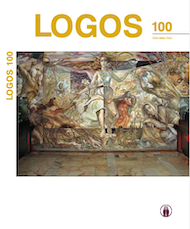Homero „matomas ir apčiuopiamas žmogus“: Ką svarbaus praleido Rorty?
Homer’s “Visible and Tangible Man”: What of Importance Did Rorty Miss?
Author(s): Tomas SauliusSubject(s): Psychology, Contemporary Philosophy, Pragmatism, Philosophy of Mind, Cognitive Psychology
Published by: Visuomeninė organizacija »LOGOS«
Keywords: Richard Rorty; Homer; folk psychology; dualism;
Summary/Abstract: While developing his dualistic conception, Rorty claims that Descartes modifies “the Homeric notion of an Invisible and Intangible Man”. This paper investigates that claim. Its main conclusions are as follows. First, in Homeric poetry, the human mind is not a mechanical sum of the “mental organs” while each of these “organs” retains its functional autonomy. Homer’s hero is a “psychophysical unity”, “embodied mind”. Second, Rorty ignores such a notion because it conflicts with his main thesis that Descartes’ res cogitans combines psychic phenomena that in the Western tradition are viewed as heterogeneous aspects.
Journal: LOGOS - A Journal of Religion, Philosophy, Comparative Cultural Studies and Art
- Issue Year: 2019
- Issue No: 100
- Page Range: 56-67
- Page Count: 12
- Language: Lithuanian

